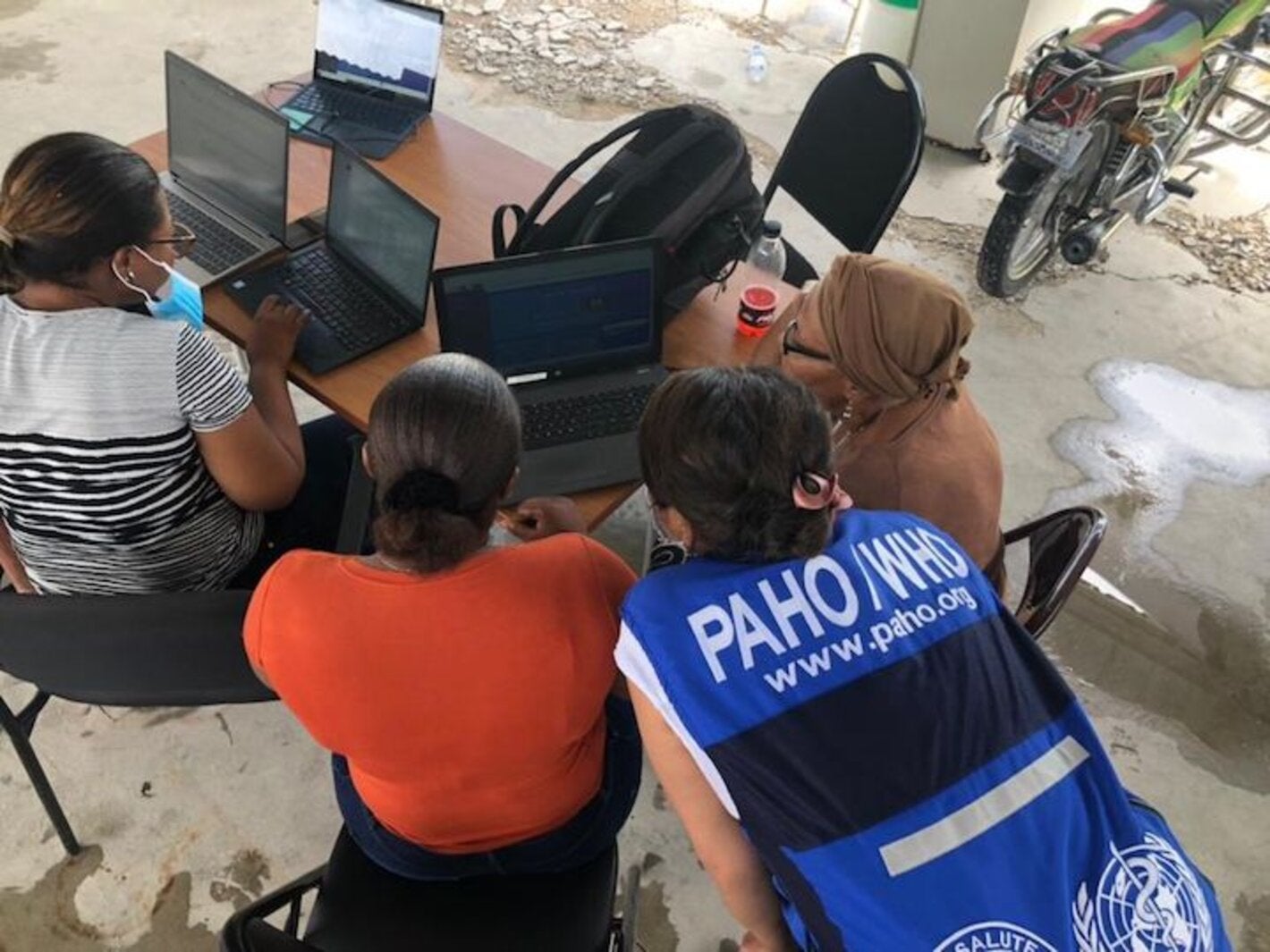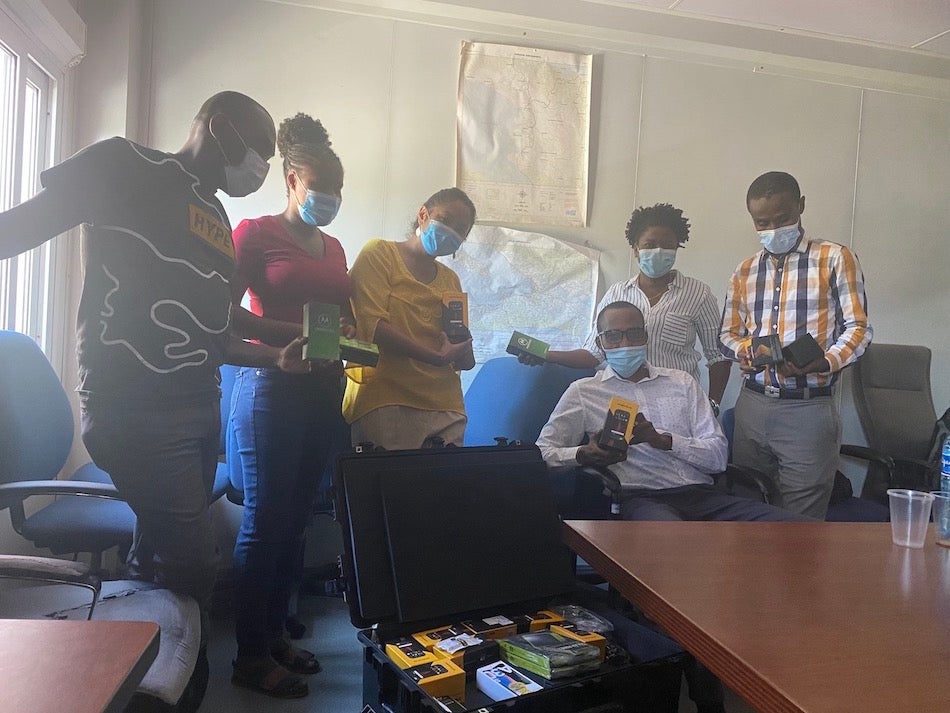
Washington, D.C. October 18, 2021 (PAHO) - In response to the August 14th earthquake in Haiti, the Haitian Ministry of Public Health and Population (MSPP) and the Pan American Health Organization (PAHO) have deployed the Early Warning, Alert and Response System (EWARS) for outbreaks and other public health events at “Assembly Points" in the departments of Sud, Grand’Anse and Nippes.
The World Health Organization’s EWARS is a disease detection system designed for emergency situations such as conflict or natural disasters. It enables a crucial early detection and rapid response to outbreaks before they escalate, cost lives, and become more challenging to control. The EWARS-in-a-box kit provides all the essential equipment needed to set up surveillance and response activities, particularly in difficult and remote field settings without reliable internet or electricity.
So far, EWARS-in-a-box has been implemented at 37 “Assembly Points” in the three affected departments – Sud (13), Grand’Anse (23), and Nippes (1). A cascade training plan with three levels was followed resulting in approximately 60 individuals trained and able to utilize EWARS for mobile/desktop reporting from the “Assembly Points”. At the central level in Port Au Prince, the MSPP team in the Department of Epidemiology, Laboratories, and Research (DELR) was trained by PAHO on the principles behind using EWAR-in-a-box as well as how to report and manage data using EWARS. This group became the “master trainers” who then traveled to each of the three affected departments. Following this, the master trainers and department epidemiologists trained all the shelter managers on community-based surveillance, how to recognize symptoms and take temperatures, and how to use the EWARS tool on mobile phones for daily reporting of data.

Daily surveillance reports from the “Assembly Points” began arriving via mobile reporting the very next day after the training ended. Between the 15 September and 5 October, a total of 290 reports were sent from 37 assembly points which generated a total of 245 alerts. Disease alerts are triggered in real time based on alert thresholds for the health events under surveillance from submitted reports.
Currently, the DELR team at the central level in Port-Au-Price as well as the epidemiologist from the three affected department are receiving virtual trainings on how to verify, characterize and respond to these alerts if need be – all using the EWARS app. They will also be receiving further trainings on how to configure the EWARS system on their own, do ad-hoc analysis within the system, and create new forms and automated reports. Currently Haiti’s EWARS profile generates a daily dashboard and four automated weekly bulletins based on the daily reporting – one for each of the three departments and one combined one for the MSPP.
The mission strongly believes that establishing a functioning EWAR system to rapidly detect and respond to outbreaks is an urgent priority in an emergency context such as Haiti. Expanding EWARS to health institutions, mobile hospitals/clinics, periodic EWARS training/re-training for health workers/ shelter managers, and supportive supervision at reporting sites in collaboration with the DELR are among the recommended next steps for EWARS implementation in Haiti.



